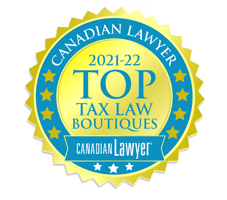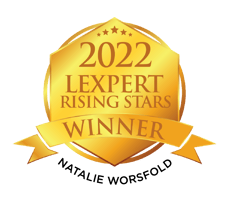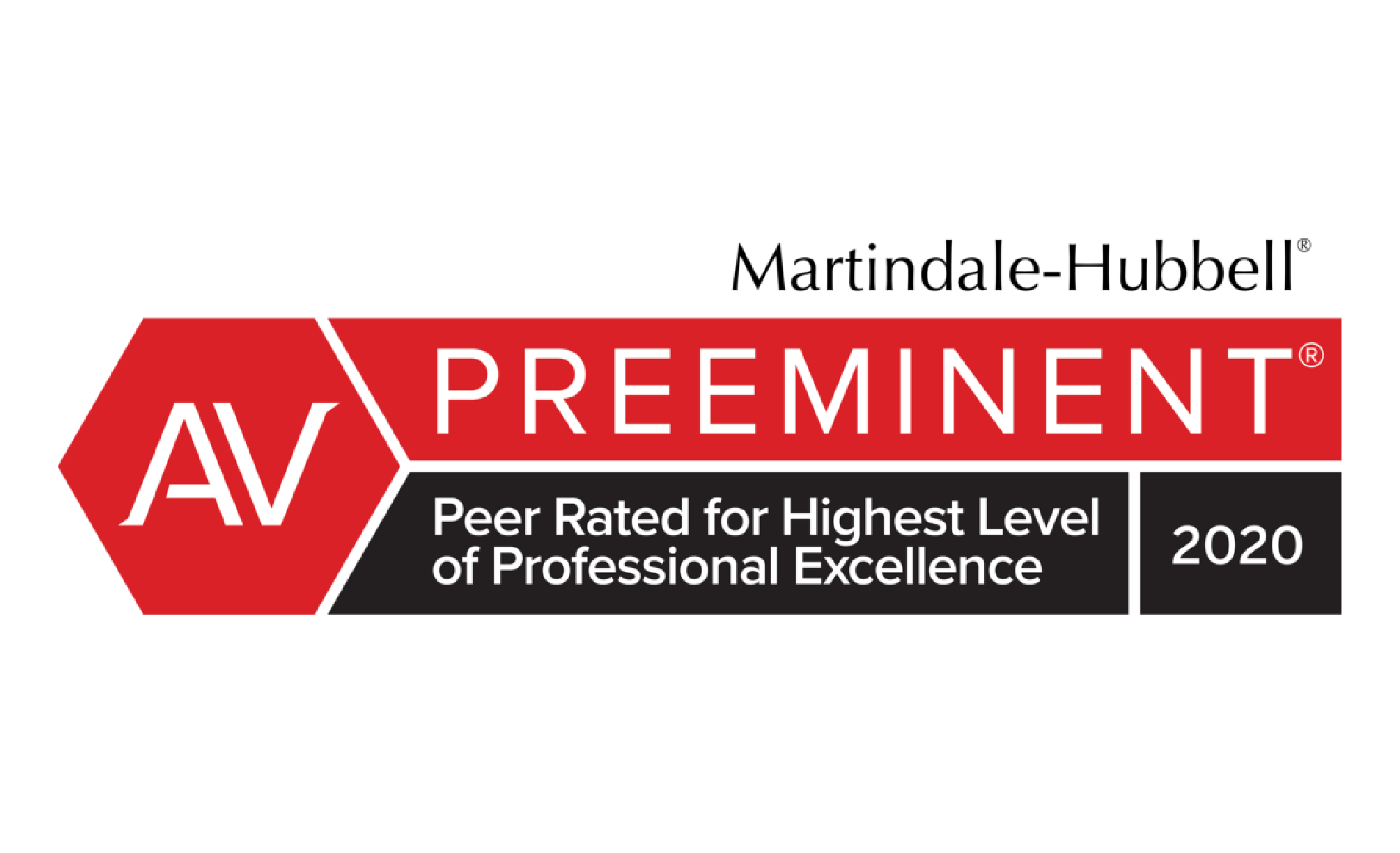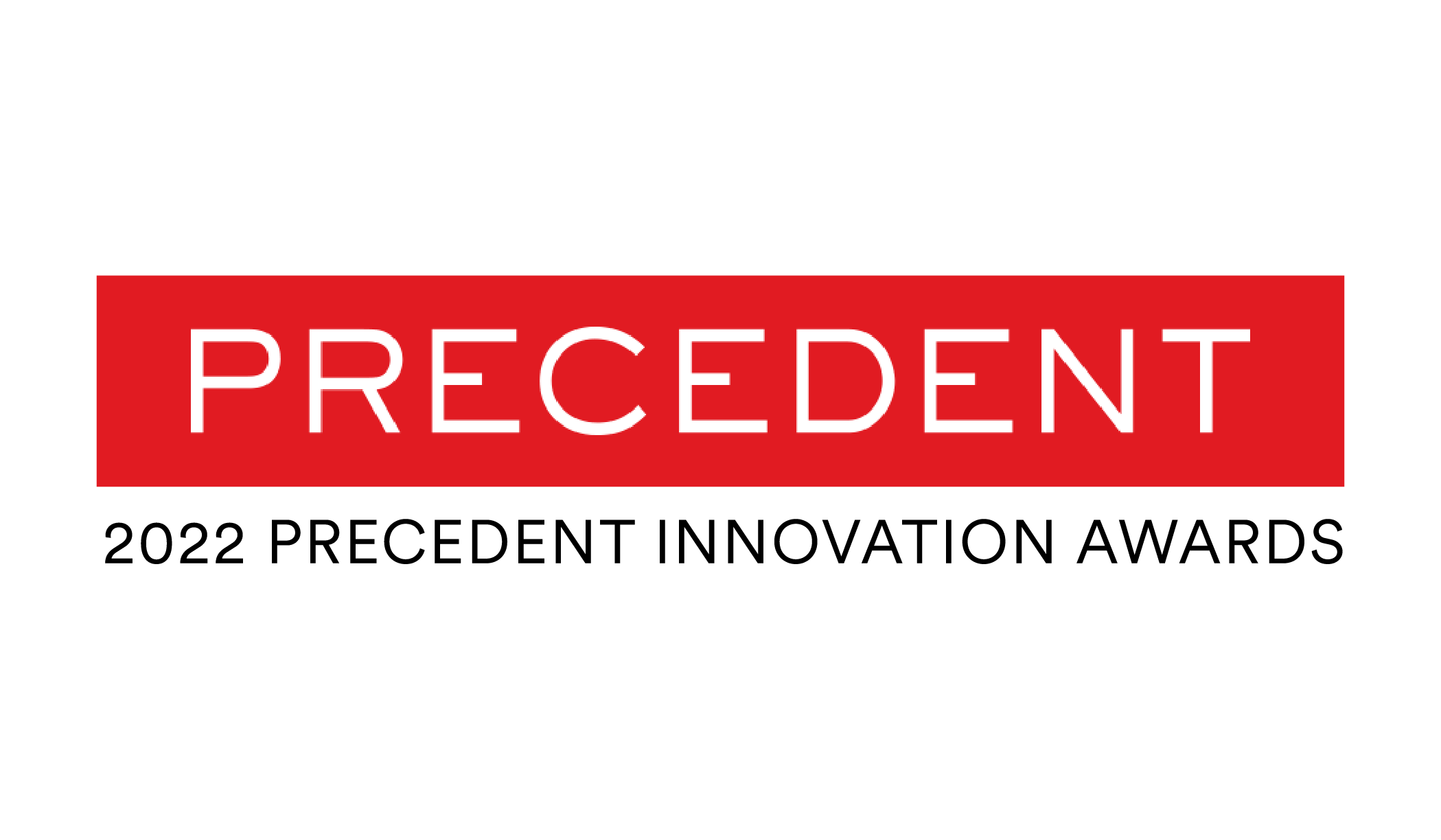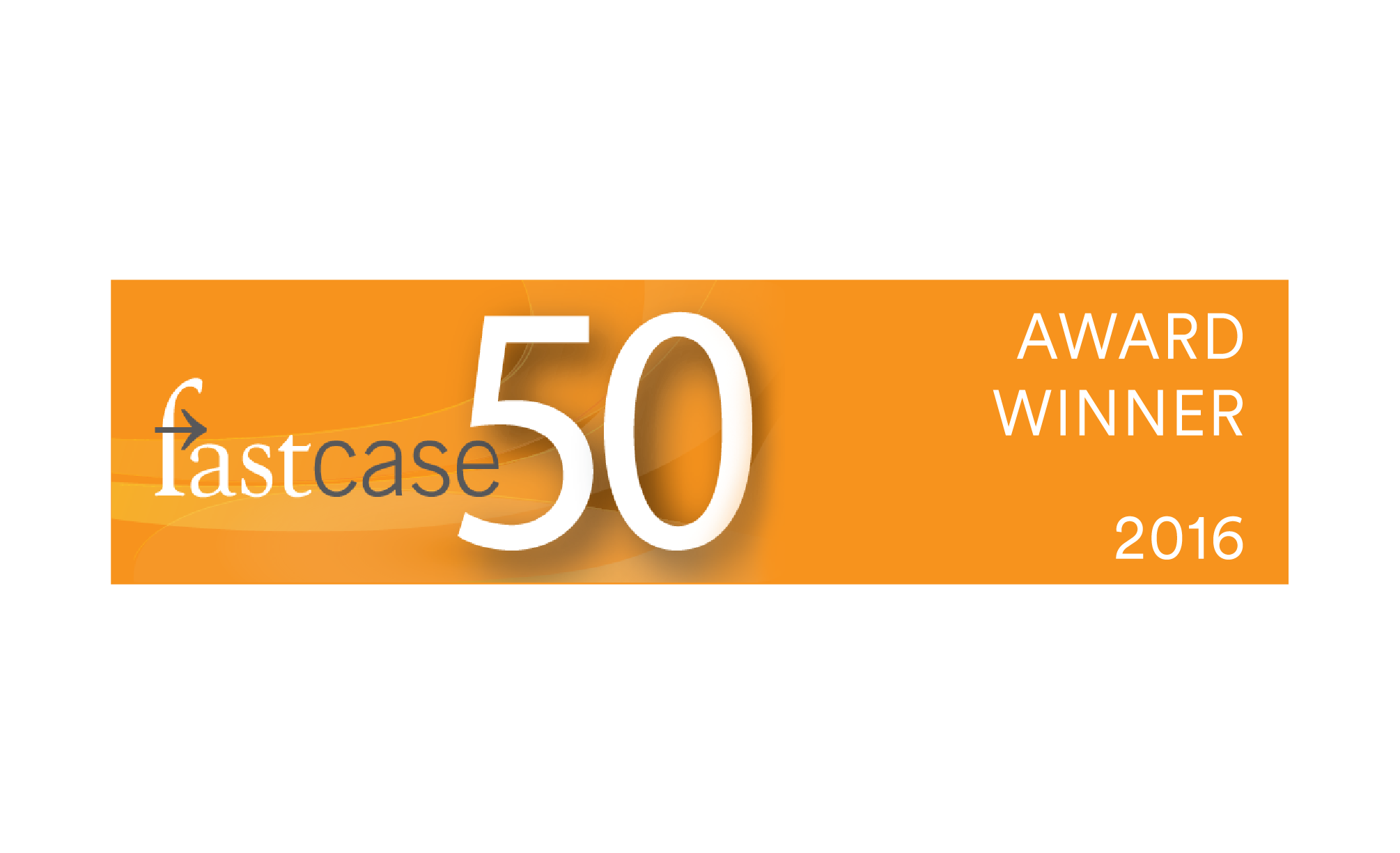
Peter Aprile and Quinn Ross discuss the Ontario Bar Association’s inaugural “Innovator-in-Residence” Program and the reasons that Peter chose to analyze traditional law firm structures and leadership, and his belief that the paradigm that underlies traditional law firms is the root cause of the legal industry's disempowerment, diversity, and innovation issues. Peter discusses his early research into new distributed power models - and Counter's experience shifting to a new model - designed to make law firms more innovative, productive, fulfilling, and meaningful.
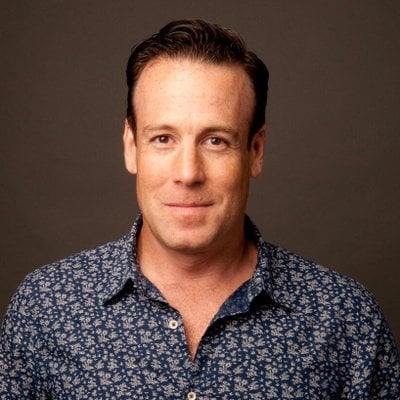
Quinn Ross does not tolerate bullies and he’s got the scars to prove it. After a few “viscerally satisfying” schoolyard encounters, it occurred to Quinn that there had to be a better way to deal with conflict. Law, it seems, was inevitable.
Out of the gate, Quinn was a successful litigator at The Ross Firm, with a focus on property, expropriation and employment cases. Over time, as the firm grew, Quinn has shifted his legal focus to business law: corporate commercial transactions, real estate and wills and estates. He has guided Ontario clients in transactions with parties worldwide, including China, Africa, Europe, South America and the United States, to mention a few.
Quinn regularly incorporates, reorganizes, structures financing, merges, and purchases and sells federal and provincial corporations. His knowledge of secured transactions helps limit exposure for vendors in a sale, and restrict overreaching lenders during purchases.
Quinn heads up the real estate team and treats each real property transaction with the same care and interest whether it is the purchase or sale of a residential home, or a multi-unit, multi-million dollar commercial property. Quinn appreciates the added experience of having litigated real estate matters when they go wrong, so he is keenly aware of potential pitfalls before they occur.
Professionally, Quinn is the Ontario Bar Association's Immediate Past President of the Board of Directors. Quinn is a regular speaker at the Law Society of Upper Canada and the Ontario Bar Association. In his community, Quinn serves as the immediate Past President of the Alzheimer Society of Huron County, and counsel to numerous not-for-profit organizations.
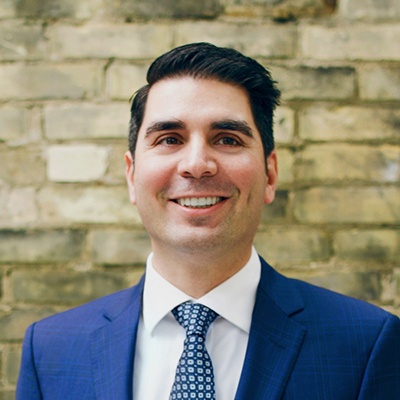
Peter Aprile is a senior lawyer specializing in tax dispute resolution and litigation. His vision as Counter’s founder and his everyday role at the firm are one and the same: to be an agent of change, uncovering opportunities and developing strategies that achieve more than anyone expected. A creative thinker, Peter studies problems from all different angles to find what others have missed. He’s also convinced that he likes winning more than most people.
Different people describe Peter in different ways. At the CRA and the federal Department of Justice, the word relentless comes up quite a lot. Admittedly, so does the word a**hole – but it’s often said with a certain grudging respect, if not affection. Peter’s clients call him a saint. Well, some of them, anyway. His colleagues describe him as empowering and harddriving, but fair. Peter’s friends call him loyal. His wife describes him as a lot to deal with, but worth it. Peter encourages his young daughter and son to call him “The Big Homie,” though with limited success. His mother describes him with the single word mischievous – before going on to complain that he should call more.

Natalie is a tax lawyer who represents individual taxpayers and owner-managed businesses in disputes with the Canada Revenue Agency (CRA). She also successfully challenges CRA decisions denying taxpayer relief and helps facilitate applications under the Voluntary Disclosures Program.
But what you really need to know about Natalie is that she’s a tax litigator with heart. When she takes a case, it’s not out of technical interest – it’s because she cares. And if she believes the government has got something wrong, she won’t stop until it’s been put right. She’s fierce.
Natalie is the co-architect behind many of Counter’s process workflows, software and data analytics systems, as well as our comprehensive knowledgebase (loving named Hank). And when it comes to preparing cases, she’s Counter’s secret weapon – happiest when elbow-deep in evidence, meticulously building creative solutions to seemingly impossible problems. Because the fact is Natalie sees things that other people don’t.
Natalie’s family and friends describe her as loyal, selfless, understanding and fun. They also mention stubborn. To her Counter colleagues she’s a combination of stellar brainpower and contagious enthusiasm who elevates the game of everyone around her.
Practices
Tech, Tools & More
[00:00] [background music]
Peter Aprile: [00:08] Hi, and welcome to "Building NewLaw," Canada's first and only CPD‑accredited podcast. It's hosted by me, Peter Aprile, and my colleague, Natalie Worsfold.
Natalie Worsfold: [00:16] In each episode, we interview lawyers, legal technologists, and other like‑minded people at the forefront of NewLaw.
Peter: [00:24] We hope that the podcast connects the NewLaw community and helps us all learn more about the approaches that are changing the way that we practice law.
Natalie: [00:29] To learn how you can use this podcast to satisfy your law society's CPD requirements, visit our website at countertax.ca/bnlcpd. That's countertax.ca/bnlcpd.
Peter: [00:39] Enjoy the show.
[00:40] [music]
Announcer: [00:40] The Building NewLaw podcast is supported by Counter Tax Lawyers, a new type of tax controversy and litigation law firm. To learn more about Counter, go to countertax.ca.
Natalie: [01:00] Today, we're going to do something a little bit different. I'm going to be interviewing Quinn Ross, who is the Ontario Bar Association's past president. We're going to be talking about an initiative he created called the "Innovator‑in‑Residence."
[01:18] The Ontario Bar Association, or OBA, is like the American Bar Association, but for one of our provinces here in Canada. It helps shape the practice of law and has wonderful things like continuing education resources and conferences to help its members be better lawyers.
[01:33] Quinn started the Innovator‑in‑Residence Program to help develop some cutting‑edge resources for OBA members. The current Innovator‑in‑Residence is none other than Counter's Peter Aprile.
[01:44] Today, I get to interview Quinn and Peter to learn more about the Innovator‑in‑Residence Program and what wonderful treats they have in store for us.
[01:51] [music]
Natalie: [01:51] Quinn, thank you so much for joining us today. Could you start off by telling us a little bit about yourself and your involvement with the OBA?
Quinn Ross: [02:05] Thanks for having me. Yes, I am the immediate past president of the Ontario Bar Association. So that I don't go into complete shock by virtue of the anticlimax that being the immediate past president provides, they give you things to do. That's not actually the case.
Peter: [02:19] It's like a little retirement thing? They let you putter around?
[02:22] [laughter]
Quinn: [02:21] That's right, yeah. It's like "The Good Wife" version of Howard. I'm Howard now. I sort of wander in. They bring me in for votes that they need to go a certain way.
[02:28] No, there is a mandate, obviously, that carries on with this role. The mandate specifically, and this is the inaugural year, is to participate in the Innovator‑in‑Residence Program, amongst other jobs. That is where I'm spending my intellectual time, just because it's the most interesting and fun.
Natalie: [02:44] So tell me about the Innovator‑in‑Residence program.
Quinn: [02:47] It is a program that's going to be a year after year paid program where the president on the advice of the board, as well as the membership and the profession at large, looks at areas ripe for innovation ‑‑ which thankfully, in the profession of law is almost all areas.
[03:03] [laughter]
Quinn: [03:04] Then from that determines what they plan on doing, what the focus of innovation will be in the following year. Then seeking out the Innovator‑in‑Residence, in this instance, Peter being our first, and working with them and following their lead as they are the architects of processes of innovation that are made available to the membership to create a safe space for that innovation.
Natalie: [03:25] I can hear from your voice that you think we need a lot more innovation in law.
Quinn: [03:28] I think that any profession where someone who died 200 years ago could come back from the grave, walk into an office and feel relatively comfortable, is probably a profession ripe for innovation, yes.
Natalie: [03:38] That is an amazing way to put it. I don't think I've thought about it quite that bluntly before. [laughs]
Quinn: [03:43] But it's true though. That's the worst part about it.
Natalie: [03:47] [laughs] Tell me a little bit more about what they want to accomplish with this program.
Quinn: [03:50] I think what we want to do is make innovation less about the intellectual process of discussing innovation and people thinking about innovation and what innovation is, and more about actually creating spaces where innovation can happen.
[04:04] I think the conversation about how the need for innovation is pressing in the dynamic marketplace, and disruption, and disintermediation. Those conversations have played out to the extent necessary that the rank‑and‑file, for lack of a better term, understand that there are legitimate changes that they are going to be confronted with in the very near term.
[04:25] What are the next steps for those people who aren't naturally in the innovation space in their own thinking? What can we make available that will facilitate them taking concrete steps in their own practice, in their own field to move their organizations forward.
[04:41] What better ground to create a fertile space than the humans that you then subsequently rely on to undertake further iterations in innovation going forward, and that's why we've leaned on Peter, and that's why we're focusing on the people that make up the practice.
Natalie: [04:56] I was just about to say that has to be in my next question. Why on earth are you choosing Peter?
Peter: [05:01] Oh, don't ask him that.
[05:02] [laughter]
Quinn: [05:03] Oh, man. For several reasons, the first is that he is...I mean, his pedigree is good. That's the first opportunity you have. You have to learn about Peter from afar, because I didn't know him from up close, and so he's got great pedigree. He's known throughout the continent as a home‑grown innovator. He is looked at as someone who actually does it. So that was key.
[05:24] Secondly, once you meet him, you understand that he genuinely believes in what he is attempting to do, and he is willing to take the risk to do it, that he is an explorer and that he is a humanist and that he believes in what he's doing but not to the extent where he's becoming blinded by his own propaganda.
[05:45] [laughter]
Quinn: [05:45] If anything, sometimes I wish he'd believe his own propaganda a little bit more, but I'll leave that for him to work through. That's probably a psychological thing.
[05:53] [laughter]
Quinn: [05:54] Yeah, that's why. I think that it was the exact right fit with the right person at the right time.
Natalie: [06:00] Peter, I have to ask you, what made you want to get involved?
Peter: [06:04] I didn't want to get involved.
[06:05] [laughter]
Peter: [06:05] I didn't. I had no intention to get involved initially other than to help Quinn and the OBA find an innovation and a person worth perusing. I thought I'd be happy to lend some of the things that we've learned and help the OBA find its path and find its innovator, and I was shocked.
[06:27] I still am shocked that I am involved, and it is only through my delight and surprise to see how genuine the OBA was about this and how open they were to the idea that I presented to be the Innovator‑in‑Residence, the topic that we were doing and the direction I intended to go through with that.
[06:47] But I was very pleasantly surprised that the OBA was very open, very willing, and very excited to actually look at real innovation in this profession and spread that to its members.
Natalie: [07:00] You mentioned the topic. What's the topic for the first year for the Innovator‑in‑Residence Program?
Peter: [07:04] Loosely speaking, it's people. What we're doing is we're looking at the organizational design and culture, so we're looking at the people in law and looking at how we can change how people relate to one another as well as organization, as well as leadership in order to create an environment where change and innovation can happen.
Natalie: [07:22] When I hear the word innovation, a lot of people associate that with technology. Why have you chosen people as the first topic?
Peter: [07:28] Like I said earlier, I think that that's the first building block on which the rest of this is based. People are the most important part of our profession. No matter what technology we layer onto lawyers or law firms, it is always going to start with people.
[07:43] I think that we haven't provided a space for the people in our profession, lawyers or allied professionals, to really grow and chase their potential, and I think that what happens is law firms are leaving a lot of value on the table. I think if we can unlock the people in our profession, they will unlock the innovation and touchingly, and we'll have a better profession and a better industry as a whole.
Natalie: [08:08] When you're referring to people, are you talking about the mindset component? Is that what this is about?
Peter: [08:13] The reality is I think that in order for the legal profession to change, in order for us to, what I keep saying, unlock our people or give people the opportunity to chase their potential, I do think that we have to look at law firm leadership.
[08:25] My position at this time is there needs to be a significant shift in mindset for the leaders of these law firms. I certainly think it's the first building block, and frankly, I think it's going to be the biggest pain point for our profession.
Natalie: [08:36] What do you mean by that? Are you talking about the partnership model? What are you referring to?
Peter: [08:40] I haven't looked at it deep enough to say whether I think the partnership model is the issue. My position at this time is that the partnership model itself isn't the issue, but what it seems to me is that, just like our organizations are stuck in the past, I think the leaders in our organizations have a long way to go as well.
[08:59] I think that we've survived, and frankly, we've all done quite well with these older organizational models, and they've required a certain type of leadership and a certain type of leadership mindset.
[09:09] It's served it very well, but as we're approaching these new opportunities or threats to our profession, not only does the professional model need to shift, but the leadership in that organization needs to make a significant shift as well.
Natalie: [09:23] You're talking more about the hierarchy and the fact that there are people towards the bottom of that hierarchy who, they have a culture of working to the bone in order to produce benefits for people further up. Is that what you're talking about?
Peter: [09:36] I do think the management control model that we've adopted in law firms as well as frankly in a lot of other industries has served us very well, but I think that top down model is probably the first thing that needs to change to start to unlock some of this.
Natalie: [09:52] When I hear you talk about that, my mind goes back to we interviewed Allie who'd done some amazing research on millennials and some of their thoughts for the future and some of the reasons that perhaps they're leaving law firms and not staying and are not as committed to that partnership model. Is what you're looking at being driven by that? Is this a reaction to the millennials?
Peter: [10:17] It's not. I think it's a reaction for some. To the millennials, it's not a reaction. For me, it's not a reaction to the millennials at all. This issue, and the diversity issue for the sake of example, that the profession finds itself in now, or the innovation issues that we're facing, whether millennials were coming or not as an industry we're facing those issues and we need to resolve those issues.
[10:38] I think this is a mammoth opportunity for us in the legal profession generally, and if you see that opportunity you'd be a fool not to pursue it.
Natalie: [10:47] Quinn, is that what attracted you to this topic as well?
Quinn Ross: [10:51] The value proposition for people who are resourcing the legal sector is changing, and I think it's a good change. We are saying that it isn't just about grinding it out, and making the money, and hitting partnership anymore.
[11:04] Despite that golden ring being still dangled, there is something that's happened to change the value proposition so that that is not the only thing guiding decisions people are making when they're engaging in their job at a law firm.
[11:21] When I've seen it fostered, I've seen healthier, happier, more creative workplaces where, as I said, and I say this a lot and at this point it might have sort of lost its meaning, but people bringing their whole selves to work. There are two choices. I mean, you go to work for 12 hours with what has been referred to as your work mask, which is crazy.
[11:45] [laughter]
Quinn: [11:45] You go to work for 12 hours with your work mask on and you grind it out. That expends energy. You want to call if physical energy, or spiritual energy, or psychological energy, you are churning that psychological energy out and you have a finite amount of it.
[12:00] It is not restoring that spiritual, or psychological energy because you're just putting it out because you're not bringing your whole self to work. You're not filling your well.
[12:09] If we can create a system or foster a system that allows people to more universally fill their wells at what they do, which means that they're actualized, they're included in their own destinies, they're allowed to try things and fail, they're allowed to bring ideas, they're allowed to have relationships of trust and mutual respect.
[12:27] Then I think, how can you not have a better, more productive experience?
Peter: [12:33] The question we're trying to answer is, so what are the practical things? What are the things that we can touch? What are the things that we as part of this Innovator‑in‑Residence program, what are the things that we can actually build or share, be it guides or tools, to kind of guide law firms or people in the legal practice to create those types of environments?
[12:53] What Quinn is talking about in terms of that wholeness aspect, if what we understand is as a profession we want a culture of wholeness, and self‑management, and innovation, then the question becomes, so how do we alter the structure itself? What are the practical tools?
[13:08] What are the practical guides that the OBA can provide, so that the output is the opposite of the current output? Instead of having law firms with little aim or little North Star other than, I guess, profit, and diversity issues, and innovation issues. If that's the current output, the question is, how do we shift that output?
[13:31] What we're talking about as far as the Innovator‑in‑Residence is, what are the guides and what are the practical tools that we can give law firms and the legal profession to switch that so the output completely shifts as well?
Natalie: [13:42] Am I right to think you're a scout going out and checking out the landscape in the future?
[13:48] [laughter]
Natalie: [13:48] And then coming and reporting back and telling us if it's safe.
Peter: [13:51] When you say us...
[13:52] [laughter]
Peter: [13:52] Yeah, that's how I view it. Quinn mentioned the word explorer before. I'm quick to point out I'm not an expert. Counter [inaudible] is just comfortable at being explorers and somewhat comfortable with exploring the unknown.
Quinn: [14:06] I think it's important to note that anyone in the exploration business will refute their expertise the more they explore.
[14:14] [laughter]
Quinn: [14:14] Simply by virtue of the very nature of exploration.
Peter: [14:19] No, I will say this. I've said this before. I appreciate our firm has a reputation for innovation, and a reputation that I resist because it's never scared me. The things that we've been doing at Counter I've been very confident with, in terms of the ideas that support them.
[14:41] This to me, this idea of looking at organizational structures and looking at cultures in a really deep way, like this isn't ping‑pong tables. Looking at that in a really deep way and turning that lens inward to our own organizational structure and my own leadership, and what that could for the people in our organization and for us as a profession as a whole.
[15:00] This is the first time, frankly, I've ever been scared of an innovation that we've ever been a part of or inserting into Counter's DNA. I truly believe that this is the most powerful innovation, and this could be truly transformative for the entire legal profession.
[15:17] The traditional forms of innovation like what we've been talking about in terms of AI, blockchain, and all that stuff. I'm sure it's going to have a significant impact on our profession. If you ask me what I think the most powerful impact is going to be, it's going to be this one.
Natalie: [15:31] I know you're still exploring, and I know that you're still looking into this topic. Is there something that you can share now as an example or something that you've learned so far that people would be interested in I guess if they're looking to make a start down this journey?
Peter: [15:44] Where do you start? If you're a law firm leader, you start by identifying the type of leader you are now and the leader that you want to be. That's where it starts. We get so tied up in the day‑to‑day of the profession, and we all build firms and we're kind of good at it.
[16:00] I don't see many people who have stopped along the way to say, "OK, so where am I? In the evolution of a leader, what stage of evolution am I at currently? And what impact is that leadership having on the people in my charge, for lack of a better word?"
Natalie: [16:17] I can hear where you're trying to go. Tell me something practical. Tell me exactly like, what's my first step? If I'm listening to this and I'm interested, give me something easy I can try out.
Peter: [16:27] Well, looking at some of the things that we've done, we looked at how we interacted with the people within our organization.
[16:33] In a traditional top‑down model, you put an assignment in front of an associate, you tell them to do it, maybe you give them some precedence or at least tell them where they are on the server, and you have them run off to the races, and at some point in time, they bring you back the work. You probably rip it apart, reproduce it, and file it.
[16:52] We looked at that interaction and what that dynamic starts to become between the person that's producing the work and the person that is giving instructions. We looked at that and we said, that is not an effective coaching model and that's not an effective interaction between two people.
[17:08] One of the things that we did was we tried to design a process that allowed for more coaching, and allowed for a more positive interaction between equals in the process, and so we came up with our writing process.
[17:20] We have...I believe it's a six‑or‑seven‑stage writing process now, in which the person that's doing the writing is given a brief that is a template that explicitly sets out what is needed to accomplish in the writing.
[17:35] There is a meeting between the writer and what we call the coach, and then there is a series of feedback loops between different people in the organization in order to ensure that at the end of the process, not only is the writing the best it can be, but also the coaching that the writer has received throughout the process is the best that it can be as well.
Natalie: [17:53] You keep using the word coach. Can you tell me what you mean by that?
Peter: [17:57] With every process that we create and with every interaction that we have between different people in our organization, we're trying to create an environment in which everybody can become a master at the thing they're doing as well as giving the greatest amount of autonomy possible.
[18:14] And so the people in our organization view themselves as coaches to one another. My job is to help you produce the best work that you can produce for your own benefit to allow you to fulfill your purpose or, at the very least, chase your purpose along the way.
[18:28] It's about creating those types of interactions and those types of environments. When we're talking earlier about leadership and mindset shifts, that's one of the important shifts that I think we, as legal professionals, especially senior legal professionals, need to make.
[18:45] It is our job to create the environment in which people can learn, and grow, and switching from a I‑demand‑you‑do‑this and you‑owe‑me‑this mindset to more...Some people call it a servant leadership mindset or a coaching mindset. That is one of the shifts that need to happen.
[19:02] Anytime you can bake those mindset shifts into the process, itself, I think then you start to get the output that you're looking for. Then you start getting a place in which people are viewed as more equal and a place in which there isn't such that top‑down, command‑and‑control servant mentality.
Natalie: [19:19] This is going back to lawyers as teachers, essentially.
[19:32] When we look at who we are as a profession, where we're supposed to be and who we are now, there seems to be a huge delta between those two points. And then the question becomes...I'm less interested in thinking or looking about why did we get lost or how did we get lost.
[19:52] Frankly, I don't really care. What I care about is how can we get back to that. Then, because of who I am in the innovations that we've had encountered, our perspective is always it is systems and process that fixes that.
[20:05] If you can fix the language, the system, and the process, you will get the output that you want. In this case, the output we're looking for is that greater autonomy, greater mastery, greater sense of purpose which, again, will naturally, we believe, resolve the diversity issues and the innovation issues that we have in our profession.
Quinn: [20:24] I'm going to play off a little bit of what Peter is talking about.
Quinn: [20:26] The existing model of feedback on the delegation of work in the instance of work, a memo or legal pleadings, is that the assigning lawyer assigns the work to the associate. The associate follows the process Peter articulated. What it does is it creates a resent‑or‑rely relationship.
[20:44] [laughter]
Quinn: [20:44] I get it back and resent the fact that I'm now going to have to basically do it, myself, or I get it back, and this is the one who really gets me and does great work. I don't have to spend so much time doing it, myself. I tend then to rely on them.
[20:56] But it does not have any coaching, developing, building component to it except by virtue of the resent relationship. The relationship, it could be one of building growth mutuality development. It just inherently does not do that. So breaking it up along the lines of what you, guys, have done allows for both agendas to be met.
[21:20] You get the great product at the end of the day. The person has given us space in which they can develop and, as you said, chase their potential.
[21:29] The senior lawyer is spending time doing what the senior lawyer should be doing which is not tearing apart, editing and/or rewriting the various assignment that they delegated reasonably for reasons of having to do other usually more sophisticated work that requires a further level of experience.
[21:48] So I think it's crucial that people...You first have to. It goes back to a reflection on self in terms of leadership. Who am I as a leader? Where am I at currently? And then you extend that into your relationships with the people you work with.
[22:02] What are the dynamics that I'm existing in, and could they be better? And could they be better for me? Could they be better for them? It's easier often to think about how a dynamic could be better for me. It's self‑serving. But in order to do that, obviously, there's always the other person. How do you foster that relationship that makes the dynamic better for everyone?
Peter: [22:18] It's kind of looking at not only the process. But when you look at the process of how we do work, then you can easily see the interactions that happen. That's what Quinn is referring to in terms of that resentment or pulling work away from people. So the question is if you can improve the process, then you can also improve the microinteractions.
[22:36] You're creating space for all these positive microinteractions as opposed to the ones that are happening now which, frankly, there's a lot of negative ones.
[22:45] So if you look at something like the writing process and break out a writing process in a written form, the same process, the same time with the same expectation by both parties throughout the process, then you can create more positive interactions and, again, room for growth.
[23:02] I think after‑action reviews are another great example of that. So, generally, we do after‑action reviews after every stage or after every submission at our law firm.
[23:11] What I think the beauty of the after‑action review is that throughout the process, no matter what goes wrong, all parties know that there is going to be a space to either address or fix what went wrong throughout that process.
[23:25] What happens is that resentment or the anger that Quinn was talking about, that sometimes happen. As the lead lawyer, if you want to call it that, or the junior or both, you know you have the opportunity at the end of this to say, "Let's sit down, and let's look at what went right. Let's look at what went wrong.
[23:42] Now, let's build our next process in order to ensure, to the extent possible, that type of interaction or that failure doesn't happen again." And so baking in all those little moments either before the process starts, during, and after provides everybody a space and a voice at the appropriate time.
Natalie: [24:00] I just want to clarify. When you were talking about the coach earlier, it's a separate role and a separate person to the supervising lawyer who handed the task over, right?
Peter: [24:08] Part of this exploration, I guess, one of the early things that we did was we broke out different roles in our organization. So we don't have a lawyer role that covers everything that happens on a file. We've broken out the lawyer role into, I want to say, about 15 different roles.
[24:30] The reason for that is to generate more autonomy and provide more opportunities for the individuals in those roles to master. So we're able to have a legal editor role. We're able to have a coach role. Or we're able to have a devil's advocate role.
[24:46] You're able to plug in different people into these different roles and allow them to provide a greater level of feedback than, otherwise, if we just follow the traditional process.
Natalie: [24:56] So Quinn, do you have any examples from your law firm of something that you've seen a change?
Quinn: [25:02] We're evolving. It's not easy. We are a firm that's been around since before any of these active leaders in the organization were involved. It was built on the traditional hierarchical model, and we're evolving away from that. Again, it wasn't conscious. It's just we were lucky.
[25:25] What we learned is that the more we spent time on process, the safer people felt within the organization because there was consistency and role delineation, whether that was perfect or not, and the happier they seemed to be because everyone knew where they were supposed to be, what they were supposed to do, and what was expected of them.
[25:49] As we've moved through that, we've attempted to then go back routinely and iterate, find out what part of the process is just there because it's a part of the process and provides no value. What part of the process, despite having some value, has a negative impact on the person who's having to do it each and every time or a positive impact?
[26:08] So we're starting to look at its impact not only on getting from A to Z in that workflow but what it's like for the humans who make up that part of the process. And it is exploration.
[26:20] We just don't have what I think and what I hope this program will offer, which is a little bit more structure and guidance, some tools, some thoughtfulness in terms of maybe a process as to how you create the process.
[26:35] It's tough because we're talking about giving human beings this room to be. We're also saying, "There's 15 spirals. We promise it's not as fragmented as it sounds, or rigid, or..." but, in fact, if you do it properly, it connects on a human level that makes sense.
[26:55] From our experience, that's how we know that we can take a break. We're always iterating. We're always going back and looking and putting all of the different pieces of the process up on the board and questioning them, but we will know that we can maybe give it a little bit more time if, after we lay out this seven‑page process for how an intake is done, that it just works.
[27:14] And we don't have a lot of pain points. And people are happy, and they like what happens. The comments that they're making about that particular process are how we can build on it to make it even more efficient as opposed to how they spend six hours of their day doing this. They just wish that they did not have to come to work.
Peter: [27:31] One of the things I really like about the OBA's initiative is it's inviting other people into the tent and, again, another reason why I'm really excited. This isn't intended to be me or Quinn just speaking at the profession. The way this works is if all of us we're interested in transforming our organization or transforming ourselves as leaders actually get involved and the OBA has an Innovator‑in‑Residence page that we'll link to in the show notes that will give people who are interested in the initiative and becoming really involved in the initiative either through workshops, or mastermind groups, or things of that nature to get involved.
[28:09] I think that the more of us that are exploring together, a couple of things happen. The first thing is it provides an energy to all of us. But the second thing is the funny thing about exploration is it feels a lot safer when more people bind together and do it.
[28:23] And so that way, we can take small steps together and, hopefully, really change the profession and learn a lot about our organizations in how we can make them better.
Natalie: [28:32] Tell me what success looks like for this initiative. So at the end of it, how will we know if you, guys, were successful?
Quinn: [28:38] OK. I'm going to answer that in two ways because that's what I've done with every question you've asked me today. The first way, how will we know what are the benchmarks for success? Well, by virtue of being willing to engage in the journey, that will be a success.
[28:51] It will provide a new vocabulary, a new perspective, a new way of approaching problems, and a new way of approaching how you structure yourself in an organization that, regardless of what your tangible outcomes are, you will have developed a skill set that you did not have before and a skill set that's essential to anyone leading an organization, period, full stop.
[29:15] Second, what are the tangible indicators of success? Happier people at work, a structure that is designed to meet the demands of the consumer, which is rapidly changing, and a structure that will be ready to foster the other layers of innovation that we've talked about.
[29:37] This is working on the body. You can put clothes on the body, but if the body is not in good shape, the clothes are still not going to be great. Adding technology, adding AI, and using blockchain, that is, in my opinion, window‑dressing if you have not taken care of the organization that you plan on innovating.
[29:56] So the benchmarks for success in that instance will be improved systems, improve relationships between colleagues, people, feeling comfortable to bring ideas and test them. There will be a change in the feeling and the output in the organization.
Peter: [30:15] What I'm looking for and what success looks to me is like when OBA members start to make that shift and start to band together to transform themselves as well as our organizations, we should be willing to try more things.
[30:45] At the end of this initiative, I want to see more lawyers and more leaders standing up saying, "You know what? We have this idea. We have a way that we can see to make things better, either for our law firm or our people. Let's try that."
[31:32] If this Innovator‑in‑Residence Program allows lawyers to gain that little bit of courage and to start to step forward, that's when I think that this initiative will be a success.
Natalie: [31:41] Quinn, I know you have a couple of other things on the go as well while you're pushing the legal profession forward, shall we say. I just wanted to touch on two of those. One is the GoFundMe page for the Pro Bono Ontario Centres, and the other is the fact that you're running for bencher this year.
Quinn: [31:58] The Pro Bono Law Help Centres.
Peter: [32:01] Before you jump into that, can you just set the stage? What's the problem?
Quinn: [32:05] The problem with the Pro Bono Law Help Centres is that, as a result of funding realities, and what appears to be a structural deficit in the organization, they're going to have to close three centers that serve approximately 18,000 people annually at court in emergent situations involving civil law, which is unique.
[32:27] There are services providing assistance for other areas of the law, but civil law assistance is unique to these centers in these areas. When this information was released by PBO, there was the expected hue and cry across all of the justice sector partners and a lot of conversation as to what should, could, and might be done which is incredibly important.
[32:52] That conversation continues and meetings are taking place, including one that we just had at the OBA today with justice sector partners trying to figure out how we can help institutionally.
[33:01] But what is often missed in those instances, practically in terms of how humans deal with things and how their attention spans work is an opportunity for that hue and cry to be turned into action in the first 48 or 72 hours, while the larger institutional players are figuring out what it is they're going to do.
[33:20] I did not want to miss that opportunity. I thought regardless of what the outcome was institutionally, it was important to take advantage or, at least, to acknowledge that public interest and have a vehicle available for people to exercise their position in the form of a monetary donation.
[33:37] So we set up the GoFundMe page, and it was immediately well received. There was some concern about charitable receipts, and some concern about the administration costs. The administration costs are less than if you were to donate with your credit card to the PBO page. So that was a plus.
Natalie: [33:51] Nice. [laughs]
Quinn: [33:51] And PBO undertook happily to provide charitable receipts because the information you get on GoFundMe is sufficient for CRA. So those hurdles overcome, it just afforded people an opportunity to actually do something while the rest of the conversation was unfolding.
Natalie: [34:05] They can step up, right?
Quinn: [34:06] They can step up.
Natalie: [34:07] That's exactly what this is.
Quinn: [34:08] That's right. The bencher thing happened before. My choice to run for bencher happened before the PBO thing. First of all, I think I provide a certain amount of insight as having the great, good fortune to have led the largest professional organization for lawyers in the country for the last 12 months.
[34:29] I bring a unique and reasonably well‑informed perspective to our regulator. I also think that I'm positioned as a result of what I focused on, which is diversity inclusion as well as the necessary changes that the profession must undergo in order to remain relevant, and also in order to remain a self‑regulated profession.
[34:50] I thought that bringing that to bear in this election made good sense. So thus, throw my hat in the ring.
Peter: [35:01] If I can just say one thing about the GoFundMe thing, like the GoFundMe thing is such a great example of action and leadership. There are hundreds, possibly thousands of people debating these ideas, thinking about what might or might not work, and there are possible hurdles that you didn't know you could get over in launching the GoFundMe page. You give the example of tax receipts.
[35:26] Can we all stop worrying about what we can't achieve and focus on what we can and just that small action? This is why mindset shifts are so hard to talk about or make tangible.
[35:39] It's that idea that let's not focus on what we can't do, or let's not focus on the debate. Let's have one person in our profession step up and say, "Here's a change we can make, and yeah, it might not be the perfect solution in there. There may be hurdles in our way. We might get over those hurdles or might not."
[35:55] But the greater goal is worth taking the "risk" or taking action now. Like I said, that's when I saw that you did the GoFundMe page, I thought, "There's a great example of leadership." I don't know. Did you think that there was some risk attached to it that it may or may not move forward?
Quinn: [36:15] Yeah, I was scared.
Peter: [36:16] Because of why?
Quinn: [36:18] Because of for exactly the reason you said, people get scared. Because you worry about what might not be possible. So I'm reading this stuff in bed. I started reading it around 5:30 in the morning. I'm reading it and I'm seeing there is a vacuum of action.
[36:33] This voice in my head is saying, "Why aren't we doing...Is there nothing we can do? Why don't we just do something? We can still talk about it, but let's do something right now." Then I get up and I get ready, and I am standing again in my bedroom with my phone setting this thing up.
[36:47] What is running through my mind is what am I going to be confronted with by virtue of taking action? What is going to befall me? What am I missing that's going to be terminal?
Peter: [36:59] Personally.
Quinn: [36:59] Personally and professionally, and what people think about you, and all of that stuff. Then in the end of ‑‑ I don't know what militated in favor of pressing the submit button, but I said, "The hell with it."
[37:11] I believe that this is the right thing to do. I cannot think of something that I haven't thought of being worse than doing nothing. So I'm going to press the submit button, but I was scared.
Peter: [37:22] When we talk about putting people first in our profession, when we talk about what real leadership is, that's what we're talking about. It's like this little micro action that you took. You looked at it, and you understand that through a certain lens you could be viewed negatively, either personally or professionally, because of this.
[37:43] With that knowledge and with the acknowledgment that there is, I guess, some risk attached to it. You acted anyway. As part of the OBA Innovator‑in‑Residence initiative, that's what we're asking people to do.
[37:55] It's we're asking people to actually take action. We'll walk beside them while they do this, but we're asking people to take action and move this profession forward to unlock the people in this industry.
[38:06] Like we said before, as soon as we do that, we unlock the diversity issue, we unlock the innovation issue, and I think we unlock a whole lot more that we currently don't see.
[38:15] [music]
Natalie: [38:15] Thanks again to Peter and Quinn for coming in and telling us a little bit more about the Innovator‑in‑Residence Program. We're excited to see where this goes and looking forward to all of the tools that they will share.
[38:36] [background music]
Natalie: [38:36] For this episode's show notes and transcript and how to satisfy your law society CPD requirements, please visit our website at buildingnewlaw.ca.
[38:54] We'd love to hear from you, and if you have any feedback, feel free to send an email to info@buildingnewlaw.ca or come and find us on Twitter @buildingnewlaw. Don't forget to subscribe on iTunes, our website, or wherever else you get your podcasts.
Announcer: [39:08] Thanks for listening to the "Building NewLaw" podcast brought to you by Counter Tax Lawyers. To learn more about Counter, go to countertax.ca.
[39:16] [music]
Lawyers that have completed the S04E01 BNL CPD cam claim a 35 minute Professionalism CPD credit.
- To access the S04E01 verification examination click this link.

.jpg?width=120&name=Counter%20Tax%20Litigators%20Logo%20Stacked%20(MidnightBlue%20on%20White).jpg)


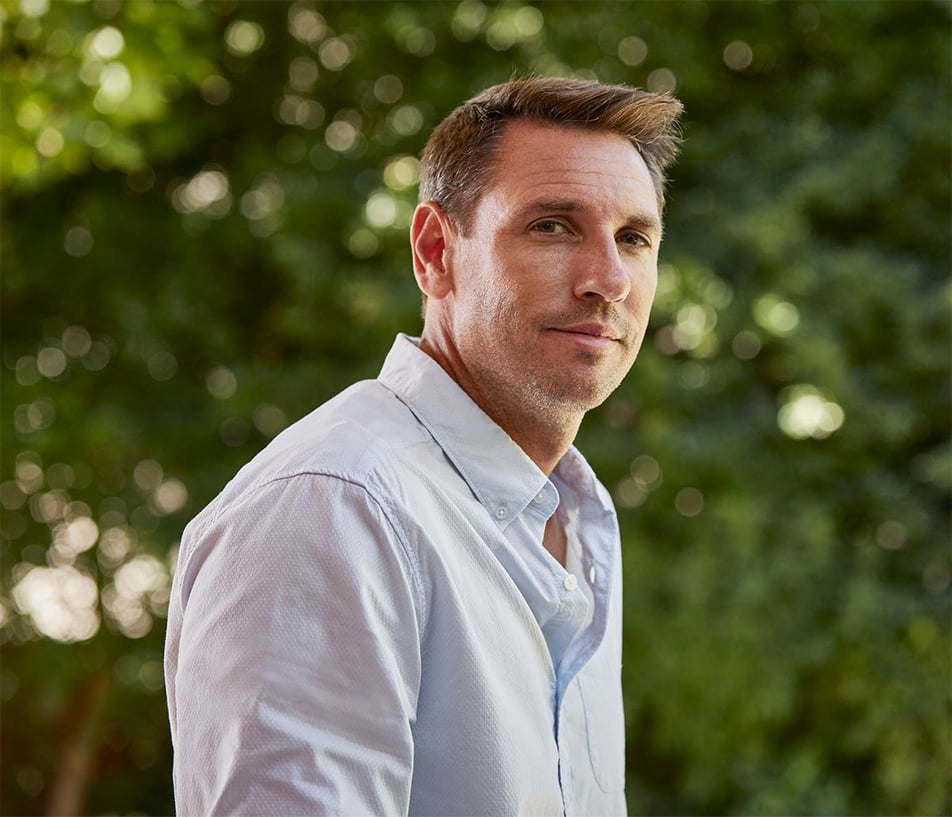

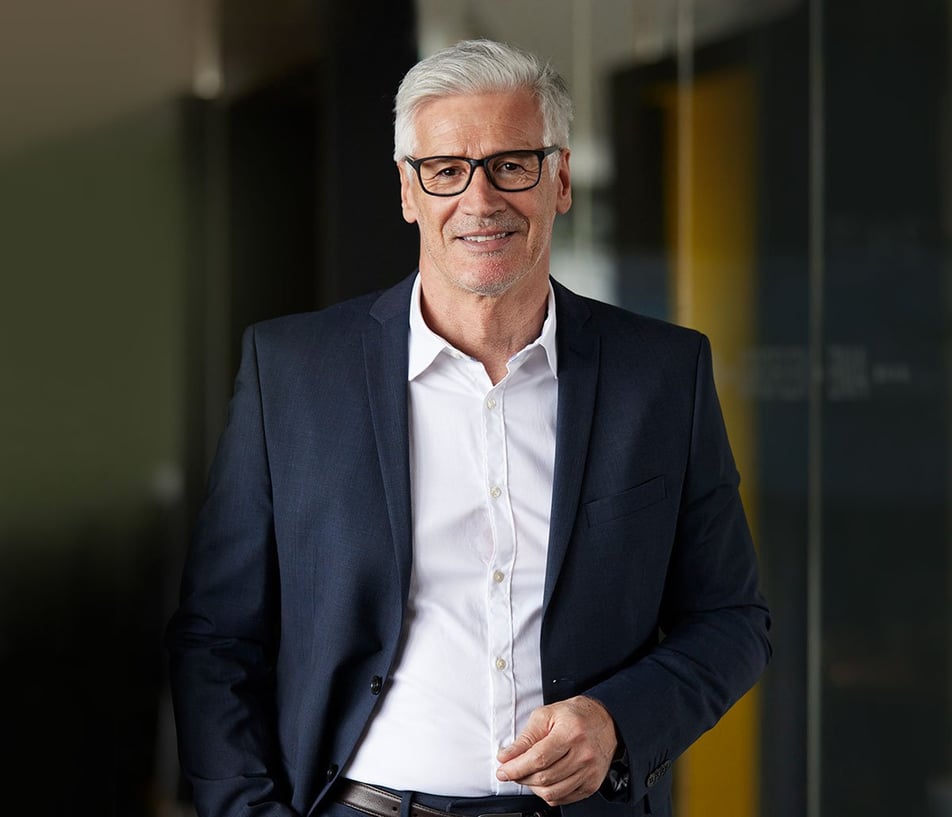

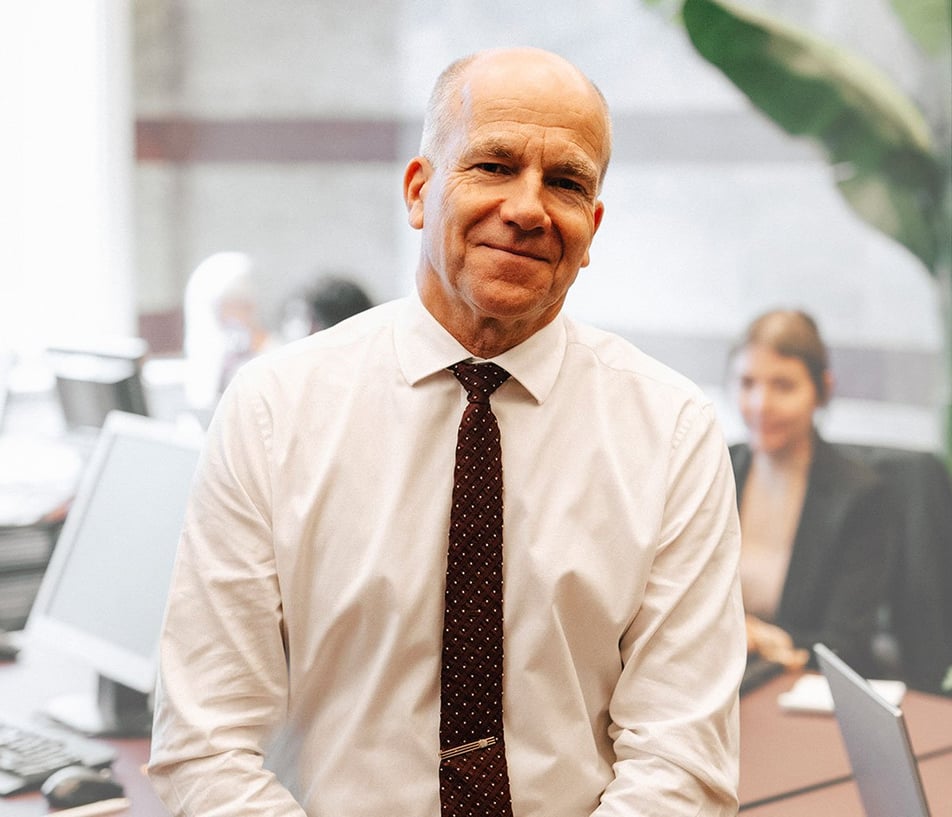
.png?width=400&height=400&name=CT-How_Can_We_Help-22_july_NewGraphic_b(small).png)

.png?width=1386&height=1224&name=2025%20Legal500%20Elite%20Boutique%20Award%20(Badge).png)
.png?width=1386&height=1224&name=ITR%20Finalist%20Practice%20Leader%20of%20Year%20Peter%20Aprile%202024%20(Badge).png)
.png?width=1386&height=1224&name=2025%20Legal500%20Leading%20Firm%20Client%20Satisfaction%20Award%20(Badge).png)
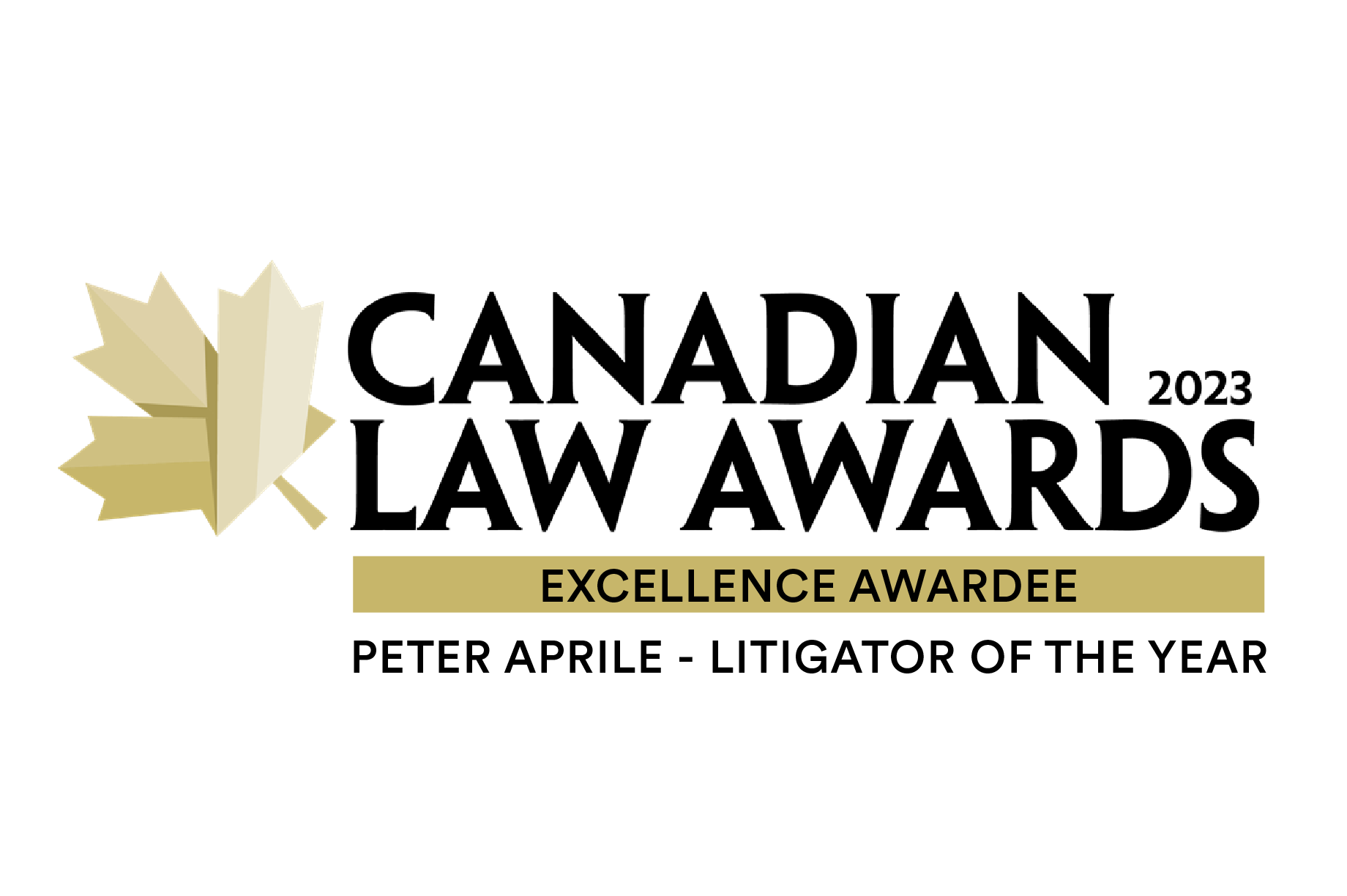
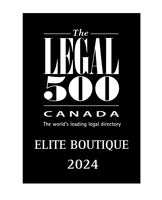

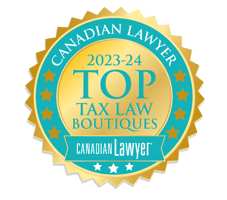
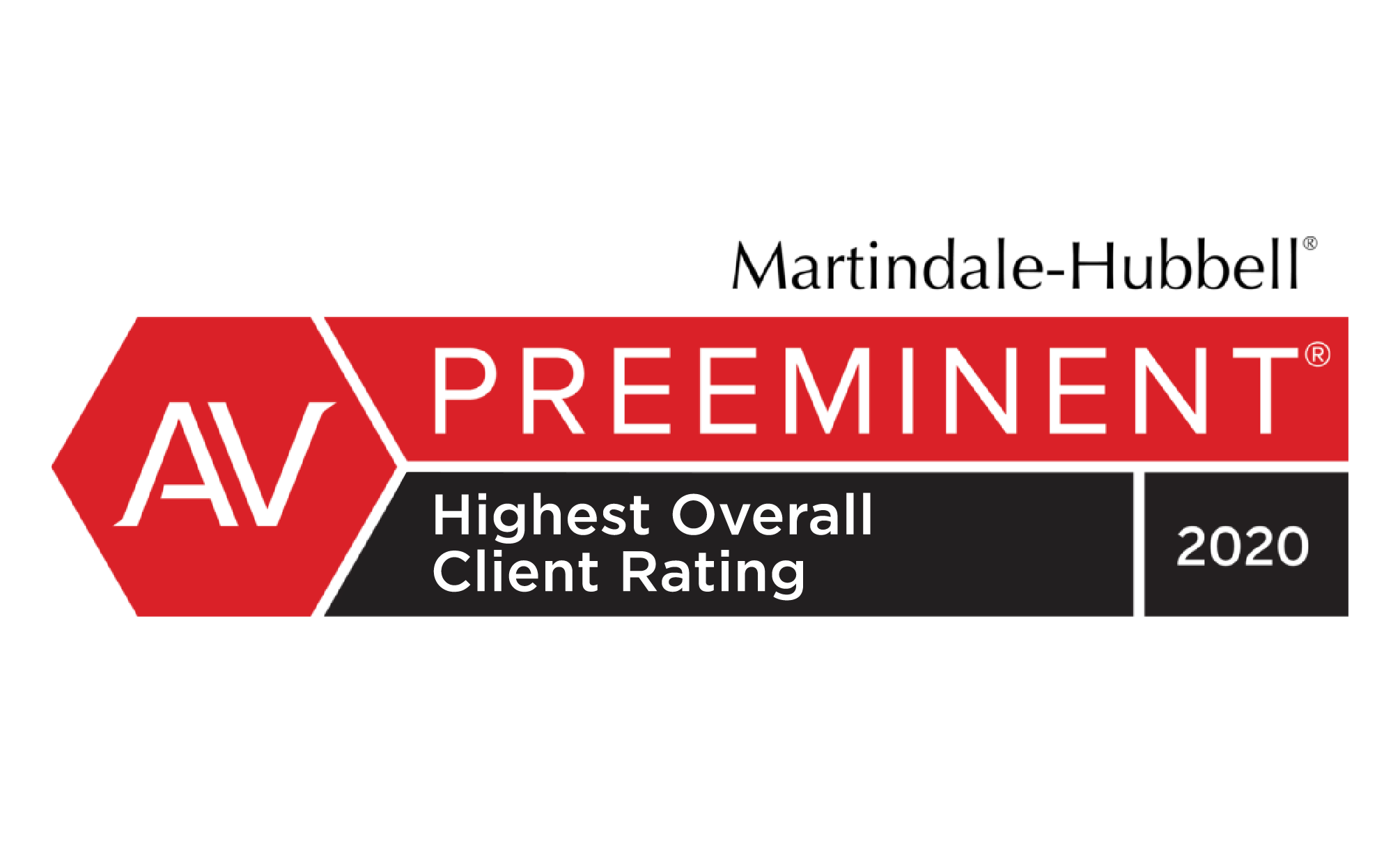
.png?width=1386&height=1224&name=ITR%20Tax%20Innovator%20Finalist%202024%20Award%20(Badge).png)
